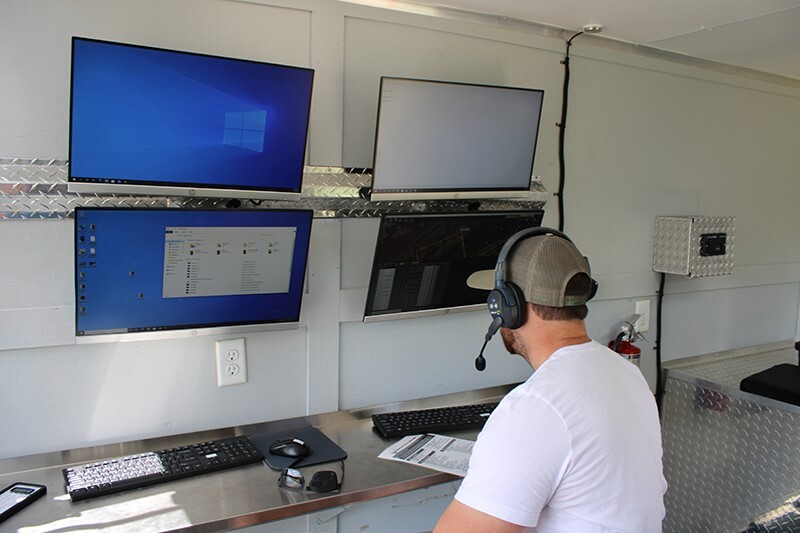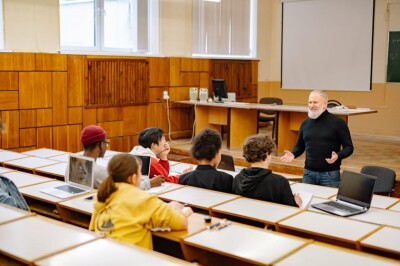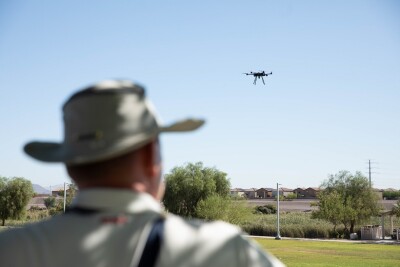During the past year, educational programs focused on the drone industry grew at an extraordinary rate. From high school courses teaching techniques for using drones in precision agriculture to college-level classes in geospatial data analysis, US educational institutions found new ways to bring needed training to students seeking to enter the UAV industry and to those already working in the field.
For Will Austin, President of Warren County Community College (WCCC) and Chief Pilot for Warren UAS, this expansion of academic programs and practical instruction is part of an ongoing effort on the part of schools to meet the demands of our growing industry. Speaking with Commercial UAV News during a recent Uncrewed Views podcast, Austin reported that his school started its Unmanned Systems Program in 2018 and has been adding new classes and programs ever since.
Austin explained that WCCC started with pilot training but quickly expanded to “data collection and analysis,” then on to “maintenance, repair, building, (and) programming.” He now believes that additional programs will be required to address two major areas that are changing the drone industry. First, expansion in the advanced air mobility sector, he said, will up the demand for skilled pilots. Austin also said that as the drone industry becomes more of a “merged industry” involving artificial intelligence, programming, and voice recognition, educators will need to focus more on “robotic build and development.”
Along with WCCC, schools around the country are stepping up to meet the needs of the uncrewed systems industry. Here’s a look at some recent developments in education and training.
- Greeley, Colorado’s Aims Community College now offers an associate degree in drone operations and engineering. The two-year, 43-credit program helps students prepare for the Part 107 exam and provides training on a range of topics, including operating drones beyond their line of sight, geographic information system (GIS) and instruction on safety management for the collection and delivery of sensitive data, and the design and construction of uncrewed vehicles. According to reports, Aims is the first community college in Colorado to offer a UAS program and the fifteenth in the US.
- In Louisiana, high school students will be able to receive Part 107 certification training and instruction on using drones in agriculture thanks to a partnership between the LSU AgCenter and the US Department of Agriculture National Institute of Food and Agriculture. An $800,000 grant will fund an Agricultural Career Exploration with Drones course that will provide instruction on manual drone flying, coding to enable autonomous drone flights, and the use of sensors and software for the collection and analysis of drone-derived data on agricultural operations.
- Virginia Tech launched a program enabling students to earn a certificate from the United States Geospatial Intelligence Foundation (USGIF). The certificate will help students launch careers in national security and intelligence using geospatial data analysis—areas that rely heavily on UAS technology. Program graduates will gain an understanding of remote sensing, GIS, cartography, and analytic processes, as well as training on techniques for creating spatial data and identifying methods for communicating that information. With the advent of this program, Virginia Tech joins 21 colleges and universities that are accredited to offer the geospatial intelligence (GEOINT) certificate from the USGIF.
- This year, the FAA selected Clemson University’s Nieri Department of Construction, Development and Planning and the drone program at the University of California Santa Cruz to participate in the Unmanned Aircraft Systems-Collegiate Training Initiative program (UAS-CTI). Initiated in 2020, UAS-CTI recognizes schools that prepare students for drone-industry careers. UAS-CTI helps schools connect with private businesses, government agencies, law enforcement, and regional economic development entities to drone-related labor needs. Member institutions can take part in meetings and other events and network with other member institutions to foster industry best practices.















Comments